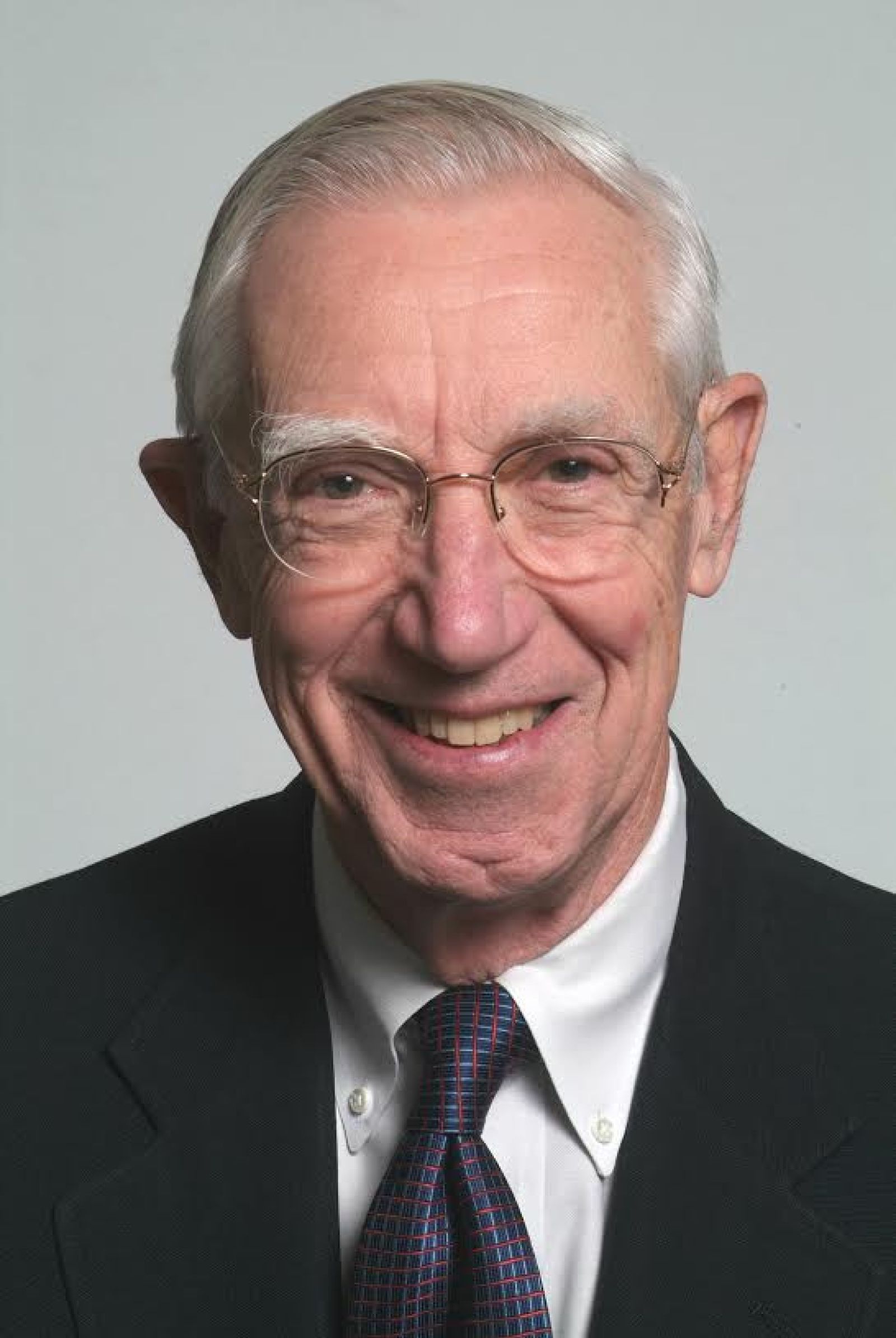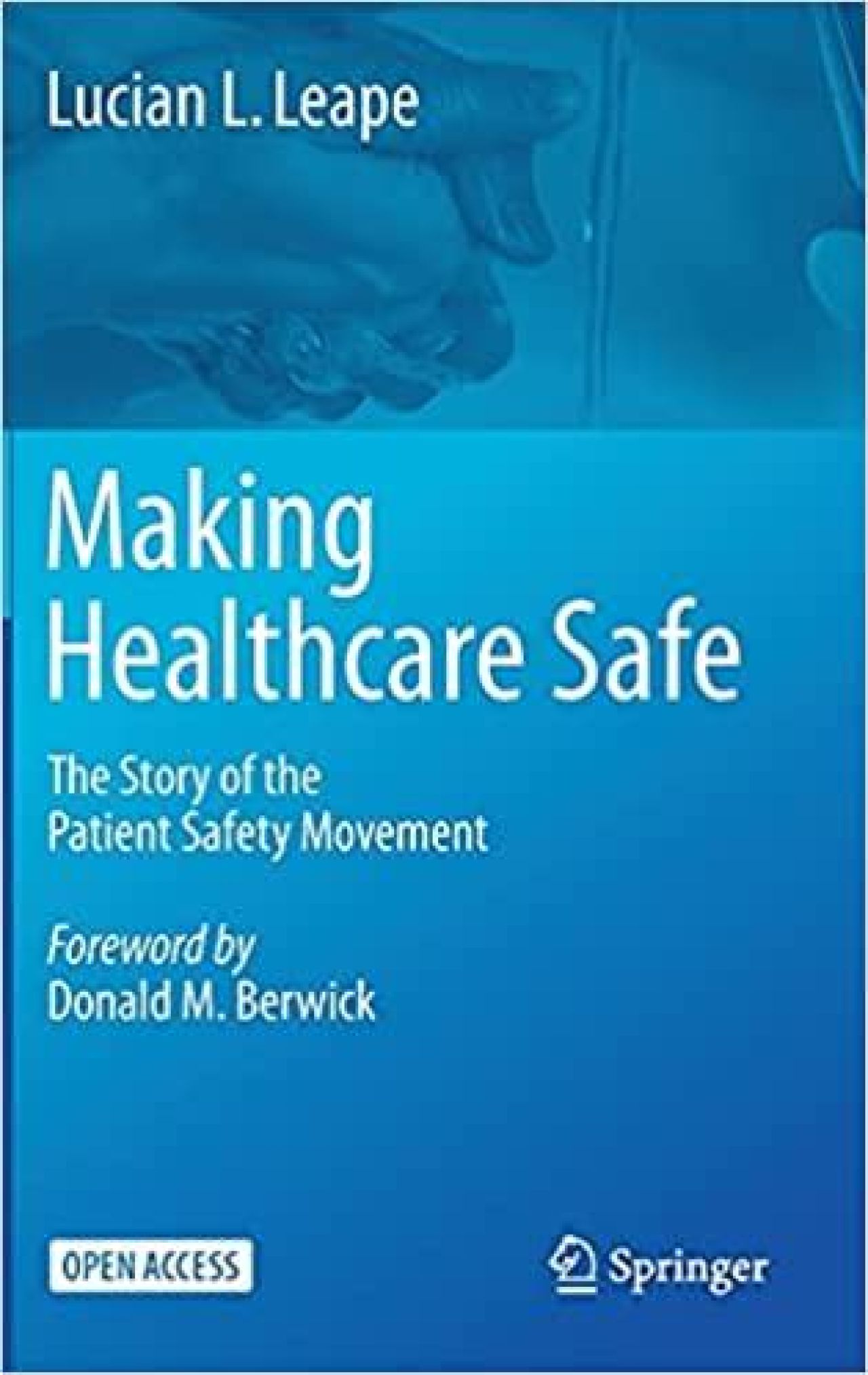Lucian Leape talks about his new book and advancing patient safety today

Lucian Leape, M.D.
Lucian Leape, M.D., continues teaching and inspiring others more than 30 years after breaking ground with his early work on medical error and harm. His most recent project, Making Healthcare Safe: The Story of the Patient Safety Movement, was published earlier this month. Dr. Leape consulted with more than 60 colleagues in patient safety to produce a detailed analysis of the movement’s accomplishments and shortcomings. The book includes reflections on his personal experiences in safety improvement work and the complex dynamics that drive health care. He also addresses the crises brought on by the COVID-19 pandemic and forecasts future actions needed to ensure safe care. Making Healthcare Safe is available in hard copy and in an open-access digital edition.
Betsy Lehman Center: In your new book, you call on provider organizations to take steps to change culture, implement safe practices and prepare for new threats to safety. What has been the most effective approach to making those changes?
Dr. Leape: We've learned we need to change how we take care of patients and each other and that the transformation has to take place at every level in an organization. It's all about changing the culture.
Patient safety takes place on the frontline so, clearly, health care workers have to be well trained and feel comfortable incorporating safety principles and practices into everyday care. A culture of safety needs to develop from the bottom up and top down, but there's a limit to how much you can accomplish without changing leadership culture. Without leadership, it just doesn't work.

Getting health care CEOs to take this on has been a major challenge — and perhaps our biggest failure. We haven't made nearly as much progress as I had hoped. CEOs often claim financial pressure is why patient safety is not first on the agenda. Leaders who have changed the culture of their organizations have taken a moral stand and said, “No, this is what we're going to do.”
We’ve also learned that after initiating culture change, sustaining it is a difficult challenge. We saw a dramatic example of that at Denver Health, which I describe in my book. When CEO Patty Gabow retired, all the work she had championed collapsed. In hindsight, it was eerily indicative of what was about to happen in this country. We’ve learned that our institutions aren't nearly as strong as we think they are. Sustainability depends on future planning, and most of all, having the unequivocal involvement, understanding and support of the board.
Betsy Lehman Center: You have been outspoken on the topic of accountability. Have your thoughts about it changed over the years? What does the concept of accountability mean to you today?
Dr. Leape: Well, I've learned a lot about accountability over the years. In retrospect, I think our original ideas were fairly simplistic. My own understanding has both broadened and narrowed. Broadened in the sense of encouraging everybody at every level, including all health care workers and even patients to be accountable for safe care. And we need to be accountable for the safety and health of our workforce, too.
My thinking about accountability has narrowed in the sense of focusing on the role of the CEO and the board. If they aren't held accountable for safety, then nothing else works. It's not enough to feel accountable and attempt to do the right thing. Until and unless CEOs are actually held accountable, we're not going to get safe care.
Betsy Lehman Center: You have renewed your earlier call for a national patient safety agency to motivate the transformational culture change needed in health care. How would such a new federal agency help?
Dr. Leape: We need a federal agency to do two things: set standards for patient safety and enforce them. Now, that's a huge job — health care is vast, complicated and involves so many people. Regulating safety would be much tougher to do in health care than it is in aviation, where the FAA deals with a finite number of airlines and pilots.
The process of developing standards would have to be collaborative across public and private entities. My vision is that first, the federal patient safety agency would meet with the National Quality Forum and review and adopt most of its standards for safe practice. Then the new agency would sit down with the major health care systems and say, "We have to do this. Let's talk about how.” Organizations must feel that they own the process and don't end up resenting it.
The Joint Commission has done more to regulate health care than anyone else, and my overall impression is that they do it pretty well. They have continually reassessed and recalibrated their approach to stay current over the past 20 years. But they have a single, fundamental limitation, which is that their accreditation is not the only option required by Medicare. Hospitals have other alternatives, most of which are less rigorous. I think we will have to go to federal regulation to get this done.
Betsy Lehman Center:
In your book, you say our health care system “collapsed” under the stress of COVID-19, referring to financial strain and even bankruptcy at some hospitals and physician practices. You also discuss the negative effect our payment system has on safety. Do you think the pandemic will have been enough of a shock to the system to force needed change?
We need a federal agency to do two things: set standards for patient safety and enforce them.
Dr. Leape: As I say at the end of the book, I think it’s still too early to tell. But I’m not feeling optimistic at the moment.
Faced with the surge of COVID we saw early last year our health care system didn't function very well. In fact, it functioned very poorly. There were dramatic examples of outstanding heroism and success, but there was total lack of national planning.
The United States is the only country in the world where health care is a business. That's the fundamental problem. Until we change how we pay for health care, we really can't get at the much more pervasive, subtle and important cultural changes we need for safe care. With the exception of calls from a few highly respected individuals, there's not much pressure to eliminate fee for service. President Biden has so much on his plate, it may not be fair to expect him to tackle changing how we pay for health care, but I don't think incremental changes are going to be enough.
Betsy Lehman Center: You have led the way on patient safety for decades. What is the single most important piece of advice you have for anyone carrying this work forward today?
Dr. Leape: I’ve been struck by the social uprisings we’ve seen in the past couple of years. In addition, of course, to distress about our response to the pandemic, there has been this tremendous increase in awareness about racism and the “Me Too” movement and others who are discriminated against in our society. We are making some progress. There is still a long way to go, but at least we're getting some movement because people protested and said, “Enough is enough.”
I think that's what we need in patient safety. We need people at every level in the system to speak up, speak out, and keep the pressure on. If everyone could make their concerns visible and audible repeatedly to everybody they work with, including their superiors, if they talk about it enough and show sufficient concern, I think they might get through to the front office. There's more of a sense now than three or four years ago that speaking out and speaking up is the appropriate thing to do. It's not bad manners, and it won't get you in trouble like it used to.
There are patients and family members, people like Helen Haskell, Sue Sheridan, Ilene Corina, Sorrel King and Linda Kenney, who have been speaking out very effectively for 20 years and have big followings. But we still need somehow to reach further into the general public.
I think we should join with others saying, "Yes, we have to stop discriminating by race, gender, and sexual orientation. And we really need to do something about preventing harm to patients. This is important." If enough people in health care join us, we might be heard.
I also want to emphasize how excited and reassured I am by the sheer number of good people doing this work. And it will take many to make this happen at all levels. What we're talking about today is how to help facilitate what they're trying to do; I think we're still looking for answers.